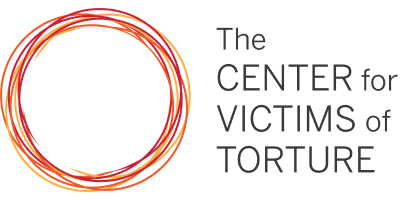Advancing Survivor-Centered Healing and Human Rights in Myanmar
Over the course of decades, the people of Myanmar (Burma) have been subjected to state-sponsored violence; atrocity crimes have harmed individuals, families and numerous communities. Complex risks make it difficult for activists and community leaders to bring about change, and with few options for healing and redress, impunity is widespread.
Civil society leaders nevertheless work toward change. In this work, resilience and a focus on mental health are critical. CVT is working to identify and support partners online and in neighboring countries to strengthen their efforts for wellbeing, healing and human rights.
Myanmar (Burma)
- Since 2013, the Center for Victims of Torture in the United States has had a program dedicated to providing supporting psychosocial care for Karen survivors from Myanmar who were resettled to Minnesota.
- Known as Healing Hearts, this program has been very successful in achieving significant improvements in depression, post-traumatic stress disorder, anxiety, pain symptoms and social functioning for clients.

Healing & Human Rights
An important element of the CVT Myanmar Initiative is our collaboration with civil society organizations (CSOs). In situations where many organizations face exposure to trauma, stress, isolation and lack of resources, our approach is to center healing and resilience by supporting CSOs with appropriate tools, support networks and trauma-informed approaches tailored to their experiences and goals. Through the CVT Myanmar Initiative, our work focuses on strengthening civil society, promoting collective recovery and upholding human rights in the face of systemic violence by prioritizing survivor-centered, community-led healing and empowerment.

How We Support Our Partners
- Mental Health & Psychosocial Support CVT is offering a range of mental health and psychosocial support options, including awareness sessions, peer support groups, counseling and rehabilitation services. Additionally, we support survivors by raising awareness on mental health and its impact, along with strategies to adopt when working with survivors through training-of-facilitator workshops.
- Trauma Resilience Workshops These workshops share how difficult conditions can affect well-being, including emotional and physical well-being, as well as social relationships. The workshops normalize signs of trauma and introduce coping mechanisms for not only victims but their families as well. Depending on team needs, CVT also focuses on self-care and staff-care training, team building workshops, organizational development consultations, and more.
- Interviewing Skills CVT provides training on how to conduct interviews and other survivor-centered engagement efforts. Topics for these trainings include: asking trauma-sensitive questions, structuring interviews and supportive referrals.
- Tele-mental Health CVT offers time-bound, remote psychosocial assistance for stress management, self-care and crisis stabilization.
Explore What We Do
Discover how we’re working to build a future free from torture, where survivors find healing and justice, and where communities restore their hope.
